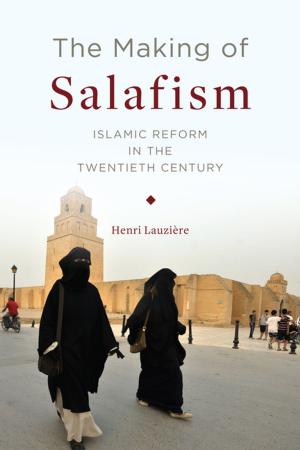The Politics of Secularism
Religion, Diversity, and Institutional Change in France and Turkey
Nonfiction, Social & Cultural Studies, Political Science, International, Foreign Legal Systems, International Relations| Author: | Murat Akan | ISBN: | 9780231543804 |
| Publisher: | Columbia University Press | Publication: | September 5, 2017 |
| Imprint: | Columbia University Press | Language: | English |
| Author: | Murat Akan |
| ISBN: | 9780231543804 |
| Publisher: | Columbia University Press |
| Publication: | September 5, 2017 |
| Imprint: | Columbia University Press |
| Language: | English |
Discussions of modernity—or alternative and multiple modernities—often hinge on the question of secularism, especially how it travels outside its original European context. Too often, attempts to answer this question either imagine a universal model derived from the history of Western Europe, which neglects the experience of much of the world, or emphasize a local, non-European context that limits the potential for comparison. In The Politics of Secularism, Murat Akan reframes the question of secularism, exploring its presence both outside and inside Europe and offering a rich empirical account of how it moves across borders and through time.
Akan uses France and Turkey to analyze political actors' comparative discussions of secularism, struggles for power, and historical contextual constraints at potential moments of institutional change. France and Turkey are critical sites of secularism: France exemplifies European political modernity, and Turkey has long been the model of secularism in a Muslim-majority country. Akan analyzes prominent debates in both countries on topics such as the visibility of the headscarf and other religious symbols, religion courses in the public school curriculum, and state salaries for clerics and imams. Akan lays out the institutional struggles between three distinct political currents—anti-clericalism, liberalism, and what he terms state-civil religionism—detailing the nuances of how political movements articulate the boundary between the secular and the religious. Disputing the prevalent idea that diversity is a new challenge to secularism and focusing on comparison itself as part of the politics of secularism, this book makes a major contribution to understanding secular politics and its limits.
Discussions of modernity—or alternative and multiple modernities—often hinge on the question of secularism, especially how it travels outside its original European context. Too often, attempts to answer this question either imagine a universal model derived from the history of Western Europe, which neglects the experience of much of the world, or emphasize a local, non-European context that limits the potential for comparison. In The Politics of Secularism, Murat Akan reframes the question of secularism, exploring its presence both outside and inside Europe and offering a rich empirical account of how it moves across borders and through time.
Akan uses France and Turkey to analyze political actors' comparative discussions of secularism, struggles for power, and historical contextual constraints at potential moments of institutional change. France and Turkey are critical sites of secularism: France exemplifies European political modernity, and Turkey has long been the model of secularism in a Muslim-majority country. Akan analyzes prominent debates in both countries on topics such as the visibility of the headscarf and other religious symbols, religion courses in the public school curriculum, and state salaries for clerics and imams. Akan lays out the institutional struggles between three distinct political currents—anti-clericalism, liberalism, and what he terms state-civil religionism—detailing the nuances of how political movements articulate the boundary between the secular and the religious. Disputing the prevalent idea that diversity is a new challenge to secularism and focusing on comparison itself as part of the politics of secularism, this book makes a major contribution to understanding secular politics and its limits.















